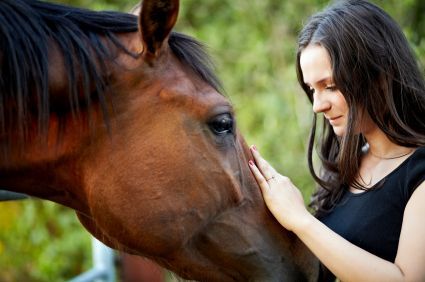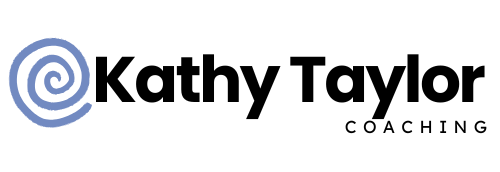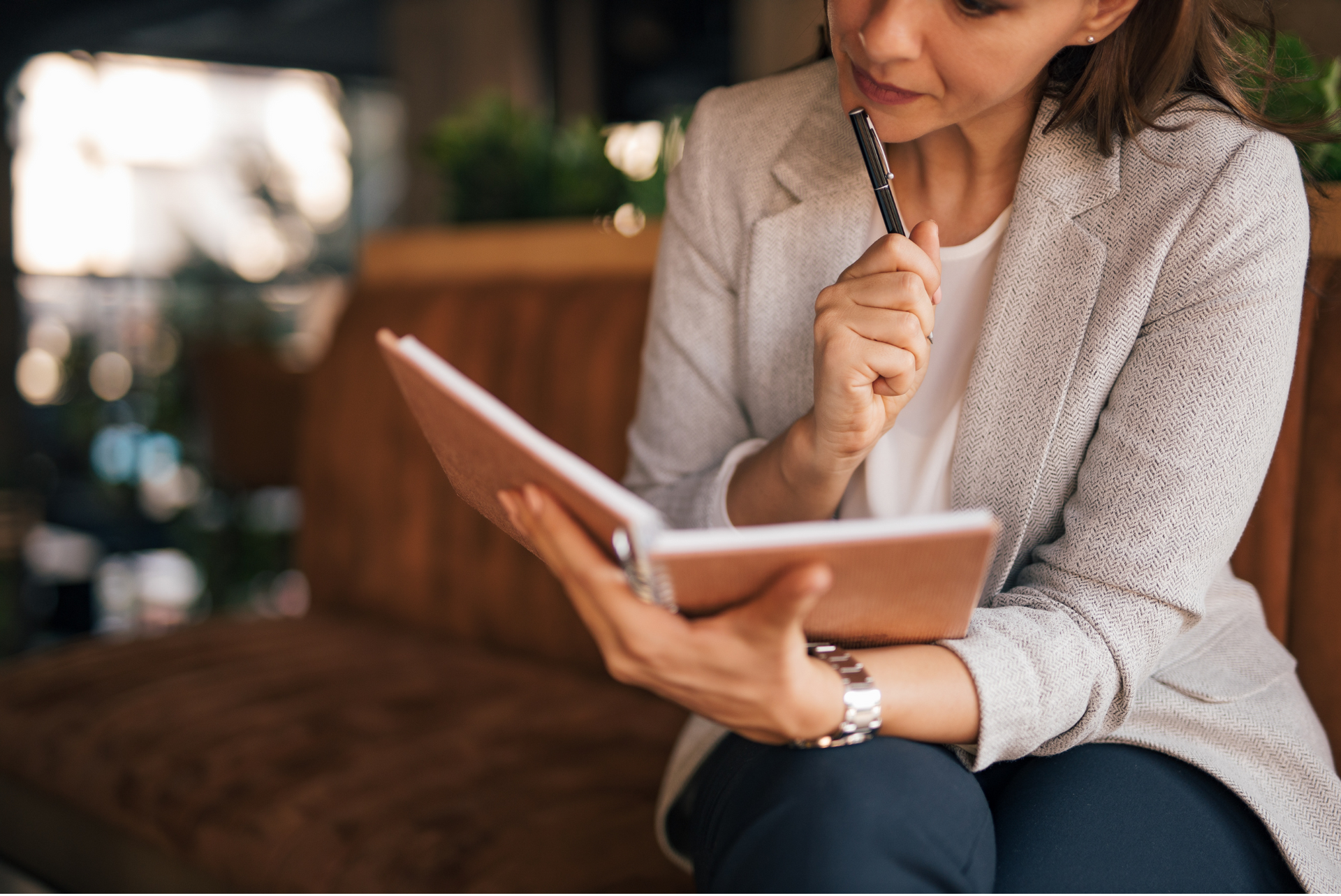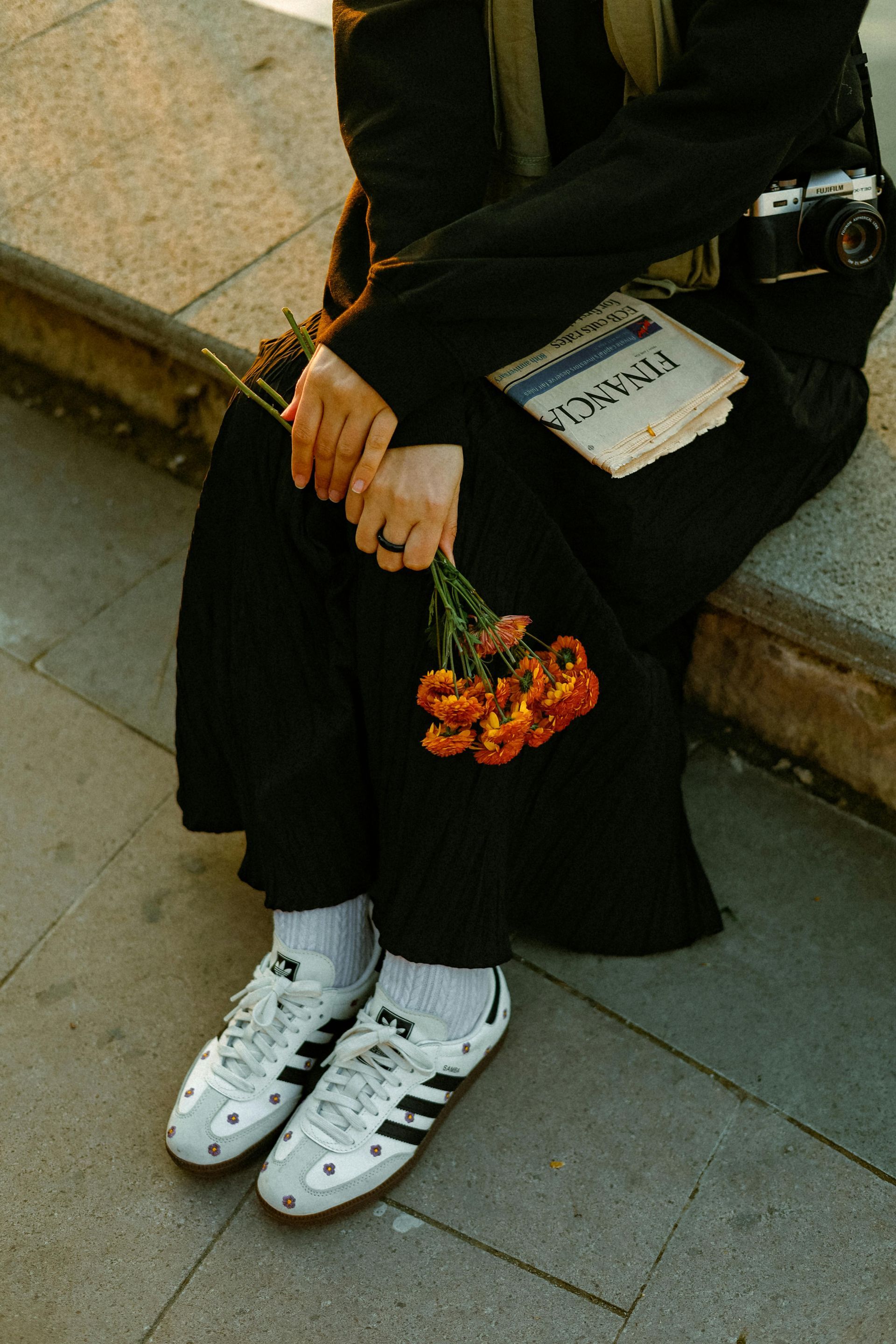
She was in a parking lot, well-dressed down to her high heels, wrestling with a full sheet of plywood in the back of a borrowed Jeep. Her own car was in the shop, but she'd come prepared to haul lumber anyway. What she hadn't counted on was it not fitting — and having to muscle it in by herself.
So there she was: pulling, adjusting, climbing around, even kicking off her heels to get better leverage.
People watched as they drove by. Someone may have pulled out a phone. But no one offered to help.
Eventually, she got it in. She climbed into the driver's seat — sweaty, flushed, but victorious.
She did it.
When she told me this story, her voice carried real pride — and there should have been. The grit, the problem-solving, the sheer determination were impressive.
Pride, because she figured it out on her own.
Sadness, because she felt like she had to.
Why Didn’t She Ask for Help?
That was the question that popped into my head. Not judgment — genuine curiosity. I probably would’ve done the same.
But still, I wondered: Why didn’t she flag someone down? Make eye contact? Just say, “Hey, mind giving me a hand with this?”
(Why wouldn’t I have?)
I’ve been her more times than I can count — not always with plywood, but with life.
And if I’m honest, it’s because somewhere deep down, I felt like I had something to prove.
The Proving Game
We’ve learned that being “capable” means doing it alone. That real strength is solitary. That the ideal woman isn’t just competent — she’s bulletproof.
We think when we don’t need help, we’re winning.
We’ve watched ourselves and other women be dismissed, underestimated, talked down to.
So when we manage something solo, there’s a real sense of reclaiming something. But the constant proving? It’s exhausting. Have you ever noticed the quiet resentment building from hoisting and hauling and doing it all yourself?
The Cost of Not Asking
A lot of us don’t ask for help because at some point, it backfired:
- We were told, “You should be able to handle that yourself.”
- We were dismissed: “Don’t be so dramatic. You’re fine.”
- Or the help came with strings — and now we owe them.
We got used to grinning and bearing it.
Now, even when support is available, we miss it.
We’d rather strain and sweat than risk the vulnerability of asking.
It’s self-protection, yes. But it’s also self-denial.
Strong Women, Tired Souls
The women I work with are strong. That’s never been in question. But by midlife, many of them are tired — not of doing, but of doing it all in the way they were told they had to.
They still want to contribute, build, grow. But they want:
- Effort that feels aligned
- Work that’s sustainable
- Success that feels alive — not driven by grind
How can I feel powerful without having to prove it constantly — even to myself?
A Different Kind of Strength
At a retreat I hosted, one of the participants stood quietly under a tree. My horse Isaac wandered over, rested his forehead gently against her chest… and just stayed.
No asking. No fixing. Just presence.
Something in her softened — like an exhale she didn’t know she’d been holding.
Sometimes we don’t need to hold it all.
Sometimes, we are meant to be held.
I submit that we must be. ❤️
Strength with Softness
That image stayed with me.
Not because it was dramatic — but because it was the opposite.
- Quiet
- Grounded
- Simple
It reminded me:
- Being held isn’t weakness
- Receiving is sacred
- We can soften and still be strong
We don’t need to prove anything. We're allowed to be helped.
Maybe this is the version of strength we’re actually hungry for.
What Keeps Us From Asking?
The barriers are often invisible but powerful:
- Cultural conditioning — asking = weakness
- Wounds — being shut down, dismissed, guilted
- Power dynamics — help can feel disempowering
- Identity — we like seeing ourselves as capable, resourceful, independent
And we are all those things.
But when that identity becomes too rigid, it cuts us off from ease, softness, and connection — even from ourselves.
What If Asking is the Strength?
Let me offer a quiet reframe.
What if strength isn’t doing everything yourself — but being secure enough to ask?
What if:
- The strongest thing you can do is let someone help — without shame?
- Vulnerability is a leadership skill?
- Receiving is what actually makes the next step possible?
What if the “power over” story we grew up with isn’t the only option?
A Personal Story
When I brought my horse Bentley home, I hoped his intro to the herd would go smoothly.
It didn’t. Isaac went after him immediately — teeth bared, full-on aggression.
I was alone in the pasture, trying to separate them, heart pounding. Eventually, I got Bentley into a separate space. Safe, for now, but I was shaking (and so was he).
As someone with decades of horse experience, I felt a wave of shame for pushing my agenda.. I should’ve known better. And worse, I told myself: “I should be able to fix this on my own. Finally, I called my totally non-horsey husband to help me think.
That call was the turning point. Not because he solved it — but because I let myself receive support.
I wasn’t calm yet, but I wasn’t alone. That changed everything.
Asking wasn’t failure. It was leadership.
It’s how we stay grounded, resourced, and able to move forward.
An Invitation
If this stirred something in you, just sit with it for a moment.
No fixing. No solving. Just presence.
Ask yourself:
- Where am I still trying to prove I can do it alone?
- When was the last time I asked for help — without apology?
- What would ease look like in this season?
There’s no right answer. Just honest ones.
Give Yourself Permission
You’re allowed to ask and to soften.
You’re allowed to be strong and still want to be held.
Yes, asking can feel vulnerable. It might make you feel exposed, unsure, and seen.
Ask anyway.
Vulnerability doesn’t mean you’ve failed.
It means you’re human.
It means you’re living with your heart open.
Let that be true.
Let that be enough.
And if you need someone to remind you of this-- I’m here.
Kathy Taylor
read my Bio






